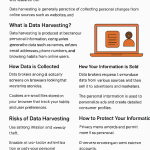AI vs. Human Doctors – Will Artificial Intelligence Replace Physicians?
The rise of Artificial Intelligence (AI) in healthcare has sparked an ongoing debate: Will AI replace human doctors? With rapid advancements in machine learning, robotics, and medical imaging, AI is proving itself as a powerful tool in diagnostics, treatment planning, and even personalized medicine. But can it truly replace the expertise, empathy, and decision-making skills of human physicians?
In this blog, we’ll dive deep into the future of AI in medicine, comparing the strengths and limitations of AI systems versus human doctors.

The Rise of AI in Healthcare
Artificial Intelligence is transforming industries, and healthcare technology is at the forefront of this revolution. From AI-driven diagnostics to robot-assisted surgeries, machine learning algorithms are becoming more accurate and efficient every year.
Some real-world examples include:
- IBM Watson Health – helps in cancer diagnosis and treatment recommendations.
- Google DeepMind – used for detecting eye diseases and analyzing mammograms with accuracy comparable to radiologists.
- AI-powered chatbots – assist in patient triage, answering common medical questions before visiting a doctor.
👉 Learn more about how AI is reshaping healthcare.
What AI Does Better Than Human Doctors
AI has several unique advantages that can outperform humans in certain areas:
- Speed and Accuracy in Diagnosis
AI algorithms can analyze thousands of medical images in seconds, detecting subtle signs of diseases such as cancer, tuberculosis, or heart conditions that may escape the human eye. - Handling Big Data
Doctors deal with patient history, lab reports, and imaging results, but AI can process millions of datasets at once, providing insights based on global medical trends. - Predictive Analytics
AI can forecast disease risks using genetic data and lifestyle patterns, allowing for earlier intervention. - 24/7 Availability
Unlike human doctors who need rest, AI chatbots and systems can assist patients round the clock, improving accessibility.
👉 Example: Mayo Clinic AI research is working on algorithms for cardiovascular disease prediction.
The Limitations of AI in Medicine
While AI is powerful, it cannot fully replace doctors because:
- Lack of Human Empathy
A machine cannot provide emotional support, comfort, or bedside manner—qualities critical in doctor-patient relationships. - Contextual Decision Making
AI relies on data patterns. Human doctors, however, consider social, psychological, and cultural factors before making medical decisions. - Bias and Errors
If AI systems are trained on biased datasets, they may misdiagnose patients or fail to represent minority groups accurately. - Ethical and Legal Concerns
Who is responsible if an AI system makes a life-threatening mistake? Doctors are bound by ethics, but AI lacks accountability.
👉 WHO on ethics and governance of AI in healthcare.
Can AI and Human Doctors Work Together?
The future isn’t about AI replacing doctors, but rather AI assisting doctors. This partnership can revolutionize patient care:
- AI as a diagnostic assistant: Doctors can use AI to confirm or double-check their findings.
- Personalized treatment plans: AI can analyze genetics and lifestyle data, while doctors bring in human judgment and patient-centered care.
- Efficiency in hospitals: AI automates administrative tasks, freeing doctors to spend more time with patients.
👉 Related reading: Future of AI in Medicine – Forbes.
Will AI Replace Doctors? The Final Verdict
AI will not replace human doctors, but it will redefine their role. Instead of spending hours on paperwork or basic diagnostics, physicians will focus more on complex cases, human interaction, and ethical decision-making.
Think of AI as the “stethoscope of the 21st century” — a powerful tool that doctors must learn to use, but not a substitute for human intelligence and compassion.
Key Takeaways
- AI excels in speed, accuracy, and data analysis, but lacks empathy and context.
- Human doctors provide emotional support, ethical judgment, and holistic care.
- The future of healthcare lies in AI-human collaboration, not competition.
Final Thoughts
Artificial Intelligence is already reshaping the medical world. While it won’t replace doctors, it will create a new healthcare system where physicians and AI work hand-in-hand to deliver better, faster, and more personalized care.
For patients, this means improved outcomes and accessibility. For doctors, it means a shift from routine tasks to more meaningful interactions with patients.
👉 If you want to explore more about AI in healthcare, check out trusted sources like NIH and PubMed.
✅ SEO Keywords Included:
AI in healthcare, AI vs human doctors, artificial intelligence in medicine, will AI replace doctors, future of healthcare technology, AI medical diagnosis, AI and physicians, machine learning in medicine, AI ethics in healthcare, doctor-patient relationship, AI healthcare tools.
Do you want me to also format this blog for WordPress SEO (with meta description, title tag, and suggested internal/external linking strategy), so it’s fully ready to publish?










